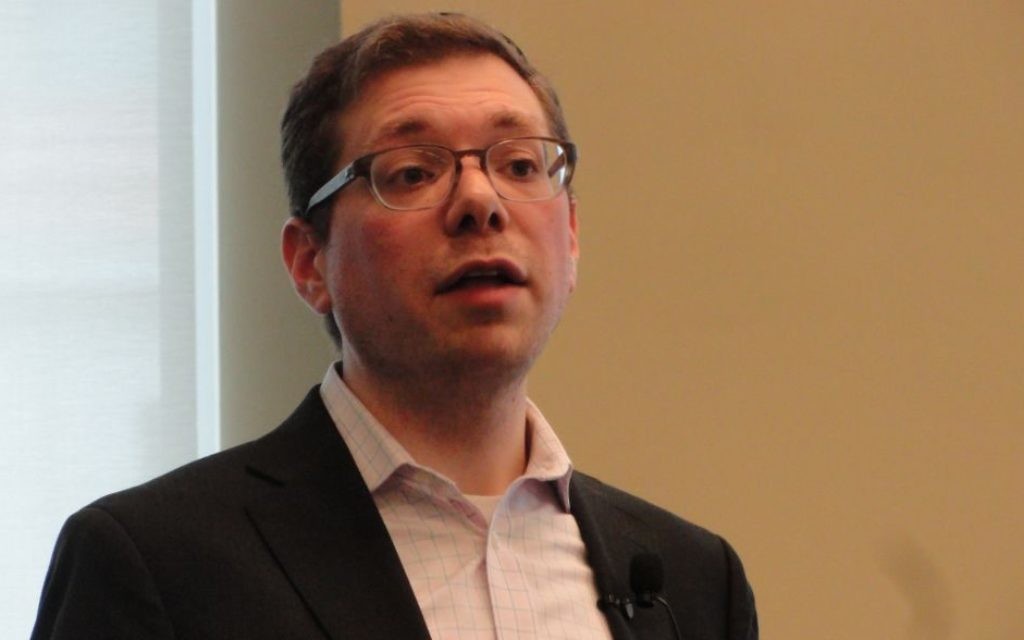Islam, Judaism Rooted in Separation From Politics
Amid a drift from that principle, Emory's Rabbi Shlomo Pill suggests more religion in public life.

A talk by Rabbi Shlomo Pill at Emory University raised questions about the separation of church and state in Judaism and Islam and the historic differences and commonalities in the two religions.
“We assume there should be some correlation between law and society and the religious faith traditions to which that society adheres,” Rabbi Pill said during his lunchtime lecture Monday, March 26, titled “Religion and State: Islamic and Jewish Perspectives From Antiquity to the Modern World.”
“In many ways, certainly until the Reformation and the 16th century, this is pretty normal. Societal norms and laws reflected religious values, and force was often used to punish misbehavior from a religious perspective.”
Get The AJT Newsletter by email and never miss our top stories Free Sign Up
Rabbi Pill, a visiting assistant professor of Islamic, Jewish and American religion and law at the university’s Candler School of Theology, said the two traditions, both closely associated with law and normative systems for individuals, “have largely, historically, rejected the idea that politics should influence religion and vice versa.”
“Islam always held that there needs to be a separation between religious authority and politics, allowing each to function as separate power bases in society,” he said. “And because religion has its own valuable place in society, it serves as a valuable check on government excesses and tyranny. When they went too far, the religious elites who were not beholden to the state called the state out on it.”
Citing Martin Luther King Jr. as a prime example of a religious figure who confronted his government, Rabbi Pill quoted the civil rights leader as saying, “The church must be reminded that it is not the master or the servant of the state, but rather the conscience of the state. It must be the guide and the critic of the state and never its tool.”
Conversely, politicians and the state were often able to criticize religion and religious excesses, and for this reason it was important for the two to be separate — the basic organizing principle of Catholics, for example.
In Islam during its classical period, systems were put in place to ensure that church and state remained independent of each other.
“That’s not so much the case anymore. Nowadays, in many parts of the Islamic world, much has changed since the 15th century,” he said. “For those of you who haven’t been living under a rock, in some Islamic republics and states, religion and politics use force to enforce laws; it’s endemic.”
As for Judaism, he said, “The independent Jewish communities that lived with the Diaspora during the medieval period, from the 900s up to the modern period, 1600 to 1700s, all of them functioned democratically, with democratic forms of government, recalls and voting rights, with all the basic building blocks you would expect from a democratic society.”
In today’s world, Rabbi Pill would like to see more adherence to religious influence. “My personal sense is that in both Islam and Judaism, strangely enough, more religion is needed. I think more religion breeds more humility, and the breadth and depth of the multiple voices with which it speaks, if viewed properly, helps support ideas for pluralism and respect for diverse opinions and respect primarily for process.”




comments